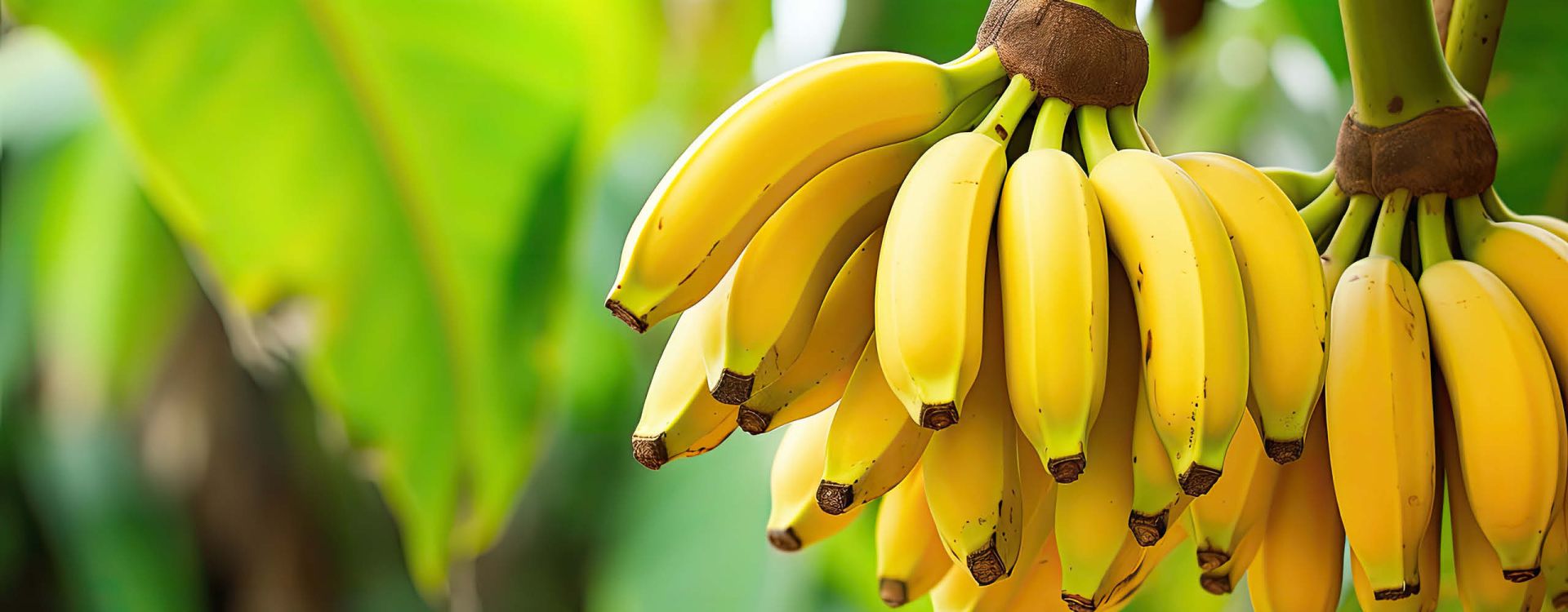Watermelon is not only delicious but also packed with vitamins and nutrients. For pregnant women, it can be both a refreshing treat and a healthful addition to their diet. But how does watermelon fit into the pregnancy diet?
In this guide, we'll explore the nutritional benefits, safety, and ways to enjoy watermelon while pregnant, along with addressing common questions about its consumption during pregnancy.
What Is Watermelon?
Watermelon is a large, vine-ripened fruit renowned for its juicy, sweet flesh and high water content. Native to Africa, it has become a global favorite, especially in hot climates, thanks to its refreshing taste and hydrating properties. The fruit is composed of about 92% water, which helps keep you hydrated, and is low in calories, making it a popular choice for those looking to maintain a healthy diet [*].
Watermelon Nutrition
Watermelons are packed with all kinds of nutrients that are beneficial to an expecting mother. A typical serving of watermelon (1 cup of diced fruit) provides [*]:
- Calories: 46
- Protein: .93g
- Fat: .23g
- Carbs: 11.48g
- Fiber: .6g
- Sugar: 9.42g
And is rich in essential vitamins and minerals, including:
- Vitamin C: Vitamin C boosts the immune system, helping to protect both mother and baby from infections. It’s essential for collagen production, which maintains skin elasticity and supports healing as the body changes during pregnancy. Additionally, Vitamin C enhances the absorption of iron from plant-based foods, aiding in the prevention of anemia [*].
- Vitamin A: Vitamin A supports healthy vision, which can be affected during pregnancy. It strengthens the immune system and is crucial for fetal development, including the formation of the baby’s organs and bones. However, it’s important to monitor intake levels, as excessive Vitamin A can be harmful [*].
- Potassium: Potassium helps regulate blood pressure, reducing the risk of complications like preeclampsia. It also maintains fluid balance, which can alleviate swelling and fluid retention, and supports muscle function, potentially easing leg cramps during pregnancy [*].
- Magnesium: Magnesium supports muscle and nerve function, reducing cramps and promoting relaxation. It contributes to healthy bone development and can help lower the risk of pregnancy complications such as preterm labor and preeclampsia [*].
- Lycopene: Lycopene, a powerful antioxidant found in red fruits, helps protect cells from damage and supports overall health. It may also lower the risk of certain cancers and heart disease, benefiting long-term health for both mother and baby [*].
- Vitamin B1 (Thiamine): Vitamin B1 is beneficial for energy production and nerve function. It helps convert carbohydrates into energy, supporting increased metabolic demands during pregnancy and contributes to overall vitality and well-being [*].
- Vitamin B6 (Pyridoxine): Vitamin B6 supports brain development and function, helps regulate mood, and can ease morning sickness. It also aids in the metabolism of proteins, fats, and carbohydrates, ensuring both mother and baby receive essential nutrients [*].
Is Watermelon Good for Pregnancy?
Yes, watermelon is beneficial during pregnancy. It is hydrating, rich in essential nutrients, and can help alleviate common pregnancy discomforts like swelling and leg cramps. However, moderation is key to ensuring balanced nutrition and avoiding excessive sugar intake.
Benefits of Watermelon During Pregnancy
Eating watermelon during pregnancy can offer several benefits, making it a great choice for expectant mothers. Here’s how this juicy fruit can support your health and well-being during pregnancy:
Hydration
Watermelon’s high water content (about 92%) is great for maintaining hydration, which is necessary during pregnancy. Proper hydration supports amniotic fluid levels, helps reduce swelling, and supports overall bodily functions. Drinking plenty of fluids, including watermelon, can help prevent dehydration, which can be more common in pregnant women [*].
Nutrient-Rich
The vitamins and minerals found in watermelon, such as Vitamin C, Vitamin A, and potassium, support both maternal and fetal health. Vitamin C boosts the immune system, while Vitamin A is vital for fetal development. Potassium helps in reducing the risk of leg cramps, a common issue during pregnancy [*].
Alleviates Swelling
Many pregnant women experience swelling, especially in the feet and hands. Watermelon’s high water content and natural diuretic properties can help flush out excess sodium and reduce swelling. It can also help relieve discomfort associated with edema.
Eases Heartburn
Heartburn is a common complaint during pregnancy due to the growing uterus pressing against the stomach. Watermelon’s natural acidity is lower compared to other fruits, which can be easier on the stomach and help reduce the occurrence of heartburn [*].
Risks of Eating Watermelon While Pregnant
While watermelon is generally safe and beneficial during pregnancy, there are a few considerations to keep in mind to ensure you enjoy it without any issues.
Excessive Sugar Intake
Although watermelon is low in calories, it is high in natural sugars. Consuming it in moderation is important to avoid excessive sugar intake, which can be a concern, especially for those with gestational diabetes. Balancing watermelon with other fruits and vegetables can help manage overall sugar consumption [*].
Food Safety
Like all fruits, watermelon should be thoroughly washed before consumption to avoid potential contamination with bacteria. Pregnant women are more susceptible to foodborne illnesses, so ensuring your watermelon is clean and properly handled is important [*].
Ways to Consume Watermelon During Pregnancy
There are many creative ways to enjoy watermelon during pregnancy. Here are some tasty and nutritious ideas to incorporate this fruit into your diet:
- Watermelon Slices with Lime: Enjoy watermelon slices with a squeeze of fresh lime for a refreshing and tangy treat. This simple preparation enhances the fruit's flavor and adds a dose of Vitamin C.
- Watermelon Smoothie: Blend watermelon with Greek yogurt and a touch of honey for a nutrient-packed smoothie. This option provides a cooling and hydrating drink with added protein and calcium.
- Watermelon Salad: Combine diced watermelon with feta cheese, mint, and a splash of balsamic vinegar for a flavorful and hydrating salad. This combination offers a unique twist on traditional salads while providing a boost of vitamins.
- Watermelon Popsicles: Freeze watermelon juice or blended watermelon into popsicle molds for a cool, refreshing treat. This is a great way to beat the heat and stay hydrated.
Watermelon and Pregnancy FAQ
Why am I craving watermelon while pregnant?
Cravings for watermelon may be due to its high water content and natural sugars, which can be particularly appealing if you’re experiencing increased thirst or a desire for sweet foods. Your body may be signaling a need for hydration or additional nutrients [*].
Can a pregnant woman eat watermelon at night?
Yes, eating watermelon at night is generally safe. Its hydrating properties can help with nighttime hydration, but be mindful of portion sizes to avoid excessive sugar intake close to bedtime [*].
Can I eat watermelon with gestational diabetes?
Watermelon can be included in a diet for gestational diabetes but should be consumed in moderation. It is essential to monitor blood sugar levels and balance watermelon with other low-glycemic foods [*].
Can watermelon cause miscarriage?
No, watermelon is not linked to causing miscarriage. It is safe to consume when properly washed and eaten in moderation. As always, it’s best to consult with a healthcare provider for personalized dietary advice during pregnancy [*].
The Takeaway
Watermelon is a nutritious, hydrating, and delicious fruit that can be a beneficial part of a pregnancy diet.
With its array of vitamins, minerals, and hydrating properties, it can support your overall health and alleviate common pregnancy discomforts. However, moderation and proper food safety practices are key to enjoying watermelon safely.
Embrace this refreshing fruit as part of a balanced diet to enjoy its many benefits during your pregnancy journey.
About MiracleCord
At MiracleCord, we recognize the significance of planning and preparation when it comes to your family's well-being. We provide advanced cord blood and tissue banking services, offering you both peace of mind and essential resources to support your family's future health needs.
Our cutting-edge facilities and committed team guarantee that your baby's stem cells are collected, processed, and stored with the highest level of care. By choosing MiracleCord, you’re making a proactive choice to safeguard your family's health.
To discover more about our services and how they can benefit your family, download our free information kit or call us at 888.743.2673. Let MiracleCord be your trusted partner in securing a healthy future for your family.
DISCLAIMER: THE INFORMATION ON THIS WEBSITE IS NOT INTENDED TO BE USED AS MEDICAL ADVICE.The materials and information contained on the MiracleCord website is provided for educational and informational purposes only, and is not intended to, and does not constitute, medical or other health advice or diagnosis, and should not be used as such. You should not use this information to diagnose or treat a health problem or disease. If you are seeking personal medical advice, you should consult with a licensed physician. Always consult with a qualified health care provider regarding a medical condition.




